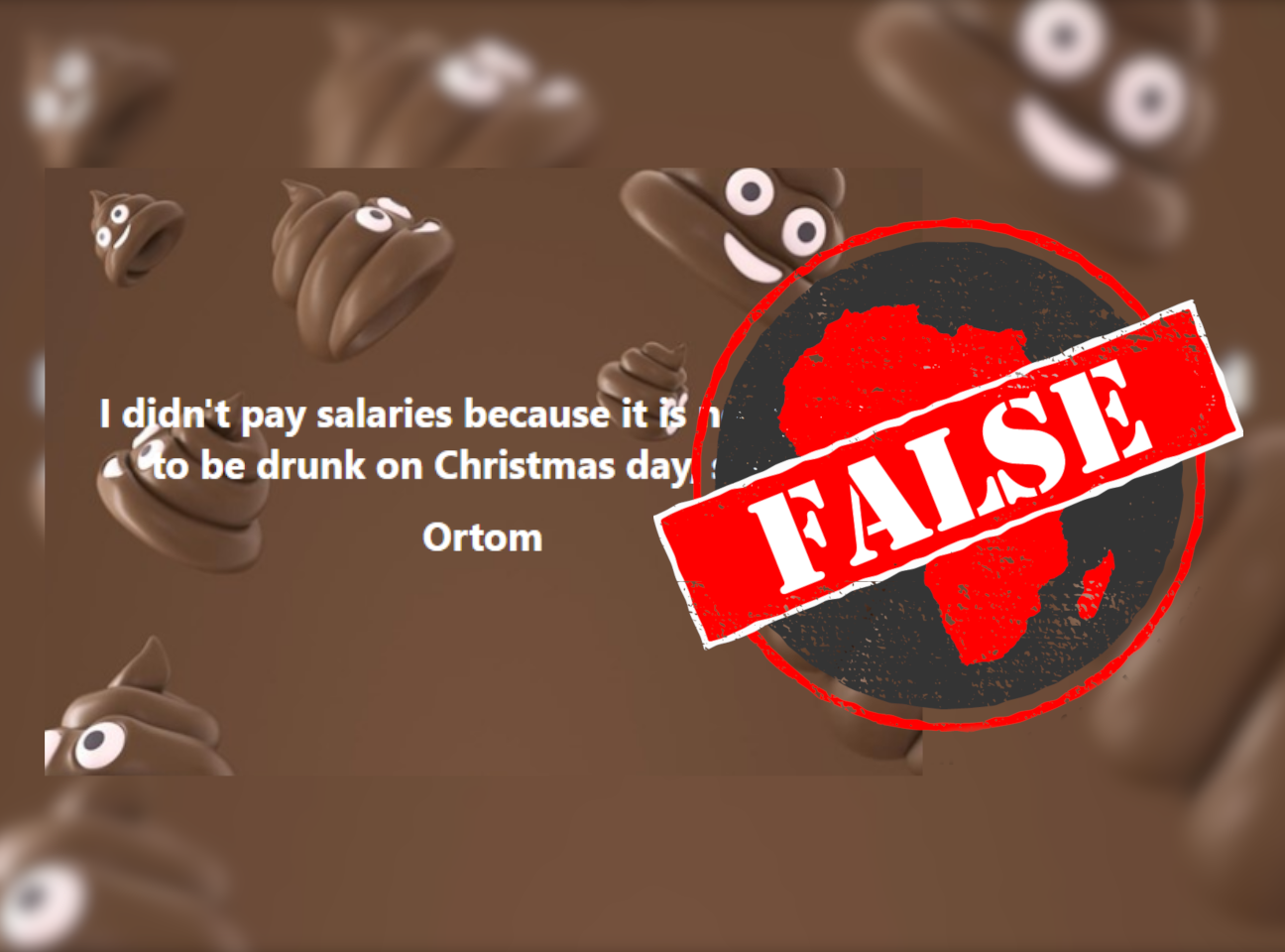IN SHORT: As Nigeria’s elections near, politicians continue to be falsely quoted. One jarring statement attributed to governor Samuel Ortom is false.
“I didn’t pay salaries because it is not good to be drunk on Christmas day,” reads a quote attributed to Samuel Ortom, the governor of Nigeria’s Benue state.
It’s been circulating on Facebook since late December 2022. (See here, here, here, here, here, here and here.) Weeks later, the quote is still getting attention.
Benue is in Nigeria’s north-central zone, but lies roughly in the country’s southeast, just touching the border of Cameroon. The state has an estimated 4.3 million people.
Ortom is set to leave office after the general elections that kick off in February.
For months, Benue’s state-employed workers have complained about unpaid salaries.
But did Ortom really say December salaries weren’t paid because the state wanted to stop its workers from drinking on Christmas Day?

No evidence of quote to be found
There’s no detail in the quote about when and where the governor supposedly said it.
There are no local reports of Ortom giving this reason for not paying workers. And the quote can’t be found on the Benue government’s official Twitter and Facebook pages.
The quote could be seen as some kind of bad joke. But for unpaid workers, it’s not that funny. And comments on the fake quote indicate that plenty of Facebook users believe Ortom really said it.
Republish our content for free
For publishers: what to do if your post is rated false
A fact-checker has rated your Facebook or Instagram post as “false”, “altered”, “partly false” or “missing context”. This could have serious consequences. What do you do?
Click on our guide for the steps you should follow.
Publishers guideAfrica Check teams up with Facebook
Africa Check is a partner in Meta's third-party fact-checking programme to help stop the spread of false information on social media.
The content we rate as “false” will be downgraded on Facebook and Instagram. This means fewer people will see it.
You can also help identify false information on Facebook. This guide explains how.



Add new comment